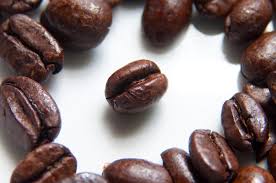We all know that coffee is sex in a cup, but what are the health benefits, and can I please inject coffee straight into my veins? Just let me go and get a coffee first, and then we can get started...
Health benefits:
Coffee intake is associated with a reduced incidence of major diseases such as cancer, cardiovascular disease, diabetes, and inflammatory disease. Just a side note, a lot of the research about coffee, is actually about caffeine as an isolated constituent and not an actual cup of coffee. Therefore, all of the research needs to be taken with a pinch of salt, or a pinch of caffeine in this instance!- Alzheimers - Caffeine has antioxidant properties and has been demonstrated to reduce early-onset familial alzheimers in mouse models.
- Antioxidant action - Coffee contains polyphenols, compounds that have anti-oxidative effects and can reduce oxidative cell damage. Note – The espresso method of extraction yields higher antioxidant activity than other brewing methods.
- Diabetes - High coffee consumption has been associated with better glucose tolerance and a substantially lower risk of type 2 diabetes.
- Depression - Some studies have shown depression rates among women decrease with increased consumption of coffee.
- Inflammation - Coffee consumption appears to have beneficial effects on inflammation and oxidative stress, thought due to the blockage of adenosine.
- Smarty Pants - The brain increases neuronal firing which means you are firing on all cylinders. A very good time to take an exam, yesiree!
- Weight Loss - Caffeine, partly due to its stimulant effect on the central nervous system, both raises metabolism and increases the oxidation of fatty acids. It is therefore considered an advantage to those following a weight loss program.
So coffee is all good then?
These are some of the contraindications and adverse reactions some people can experience if they consume too much, or if they are more susceptible to caffeine.- Psychological effects and sleep changes - Everyone who has had one too many coffees, knows what I mean when I say “coffee jitters”. This can also cause anxiety and irritability, along with insomnia.
- Dehydration - According to one report, caffeine does not cause dehydration or act as a diuretic when consumed in moderation (under five cups a day), suggesting that coffee intake also adds to the body’s daily fluid.
- Pregnancy - Caffeine molecules are small enough to penetrate the placenta and pass into the baby’s blood circulation. Foetuses are not capable of metabolising caffeine and excreting it, so it is therefore in their system ten times longer than in adults. There is, however, no evidence that coffee intake causes miscarriage or malformations.
- Iron Absorption - Coffee can interfere with the absorption of iron.
- Panadol - Caffeine should not be mixed with Panadol (paracetamol / acetaminophen) as it may cause damage to the liver.
- Gluten Cross Reactivity - Coffee comes from a seed which means it comes with armour to protect it from being digested meaning it may irritate the gastrointestinal tract. So for those who have sensitive tummies and IBS, perhaps keep it to a minimum. Whats more, in gluten sensitive individuals coffee has been shown as one of the most gluten cross reactive foods – meaning it can still cause issues for your gut, immune system and overall health even though it is gluten free. .
How much can I drink?
One to two cups a day should be your maximum as massive amounts of coffee are bad for you. Everything in moderation. Although, if you are sensitive (like I am) and you start to lose sleep, or you experience anxiety, then stick to one cup or none at all.
The final word:
Coffee is one of the most commonly consumed beverages in the world. Although there are many health benefits, consuming too much coffee has been linked with other negative habits such as smoking, eating unhealthy food and a lack of exercise. Therefore, control your coffee intake and reap the rewards. So I’m very happy to conclude that on the most part a daily consumption of one cup of black coffee a day, is fairly healthy for me. Coffee anyone? ~ Nicole
Extract from - Nicole Dickmann. Nicole is an Nutritional Therapist on a mission to help busy women and men activate their supreme health potential, unleashing productivity and high performance to multiply their impact, influence and income.


